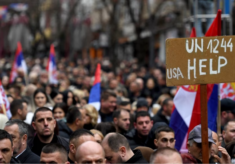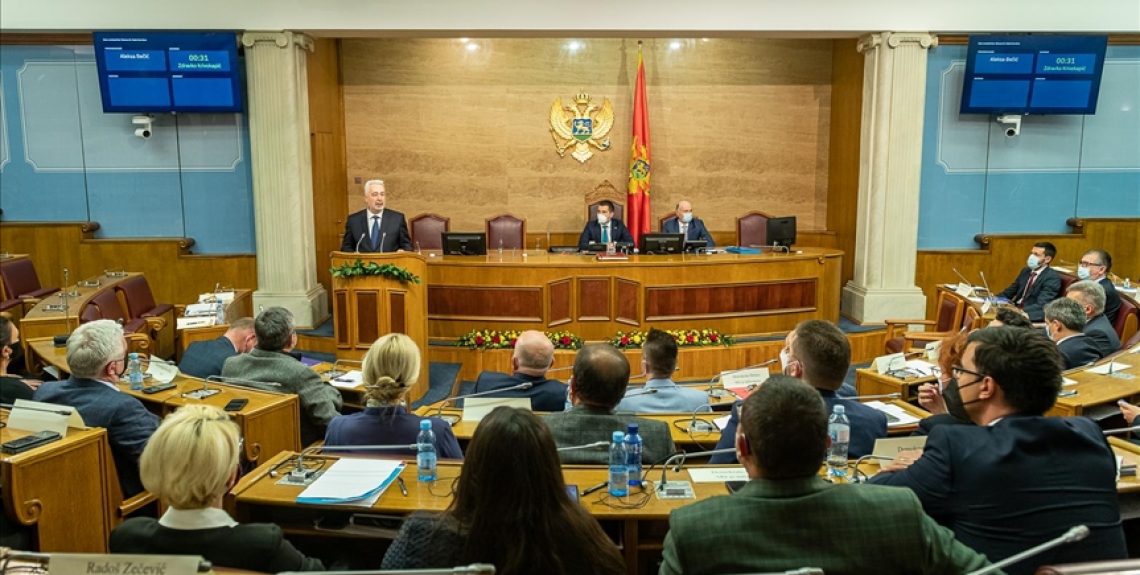The new Montenegrin Government, led by Zdravko Krivokapic, won a confidence vote in Parliament on Friday, 4th of December, opening a new political era in the tiny Balkan country. For the first time since 1991, it will not be ruled by the Democratic Party of Socialists (DPS) led by Milo Djukanovic who emerged as a faithful ally of Slobodan Milosevic in 1991 and has been the master of Montenegro’s politics for the last thirty years. He has served as both Prime Minister and President, the post he holds currently, and has shifted gradually to a pro-West stance that culminated with Montenegro’s accession to NATO in 2017.
At parliamentary elections on 30 August, the DPS secured only 30 of the 81 seats of Montenegro’s parliament. The winner was a coalition formed by three electoral alliances: For the Future of Montenegro, Peace is Our Nation and Black on White. The first one is led by the pro-Serbia Democratic Front (DF), the others are pro-EU and civic-oriented groups. Together, they have 41 seats in the Parliament – a very slight majority.
Krivokapic, 62, is a mechanical engineering university professor without any political experience, as are his ministers. Milojko Spajic, the Minister of Finance, has made an international career as an investment banker while Tamara Srzentic, the Minister of Public Administration, has worked as an expert in reforms to modernize the public administration in California, where she studied and graduated.
Appointing technocrats in the cabinet is a move to appease voters. The country is extremely polarized, with the DPS accusing the DF of being openly pro-Serbia, planning to detach Montenegro from the West. Appointing the DF leaders Andrija Mandic or Milan Knezevic as ministers would only have exacerbated tensions.
Despite being composed of technocrats, the new cabinet has a clear political mission: to change a country that has been ruled for thirty years by one party, led by one person, widely viewed as corrupt and uninterested in creating the bases of a stable economy. The first main goals of the new cabinet will be fixing the economic scenario, burdened with the new challenges posed by the coronavirus pandemic and rewriting a controversial law on the ownership of religious buildings passed in December 2019, which could strip the Serbian Orthodox Church of some of its holdings. The previous government said that the law was necessary to align with the EU standards, but the current rulers described it as an attempt to punish the Serbian Orthodox Church, the main church in the country, yet with many Montenegrin worshippers, and to create an artificial confrontation between a pro-Serbia camp and a pro-West camp, just for electoral reasons.
History, religion and mixed families cement ties between Serbia and Montenegro, where one third of the citizens define themselves as Serbs, despite the two countries having been at odds quite frequently in recent years.
The new government’s intention of rewriting the law on religious buildings has already sparked protests. On the 28th of December 2020, thousands of people rallied in front of the Parliament while lawmakers were opening a debate on the law. The crowd accused the coalition of betraying the country and serving Serbia’s interests. Tension could increase in the coming weeks. Another sensitive test in terms of identity will emerge with the census to be carried out in the coming months. Citizens will be asked to declare their religious affiliation, national identity and language.
Problems related to identity are just one factor making the path to change very narrow for the government. Its room for manoeuvre is threatened also by a difficult economic environment and by the grip that the DPS still holds on the judiciary, law enforcement agencies, lots of municipalities and media. The party and its leader, Milo Djukanovic, will try to mobilize all of their resources to shorten the life of the new government, that for several observers is an opportunity for a country needing acutely some reforms aimed at tackling corruption and winning back people’s trust in public institutions.
As for foreign policy, the Prime Minister, Zdravko Krivokapic, and the Foreign Minister, Dorde Radulovic, a young career diplomat, have confirmed the country’s commitments to NATO and EU integration, as well as sanctions on Russia, sticking to the policy inaugurated by Brussels due to Moscow’s role in the war in Ukraine.


